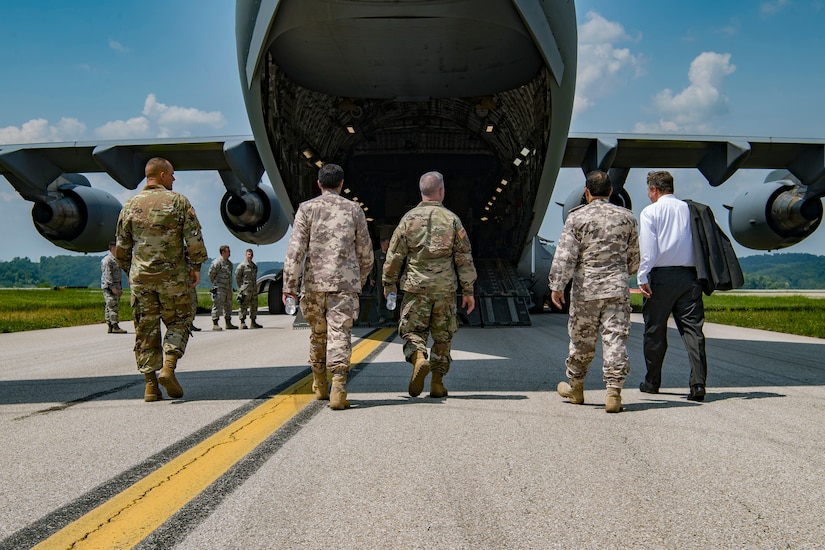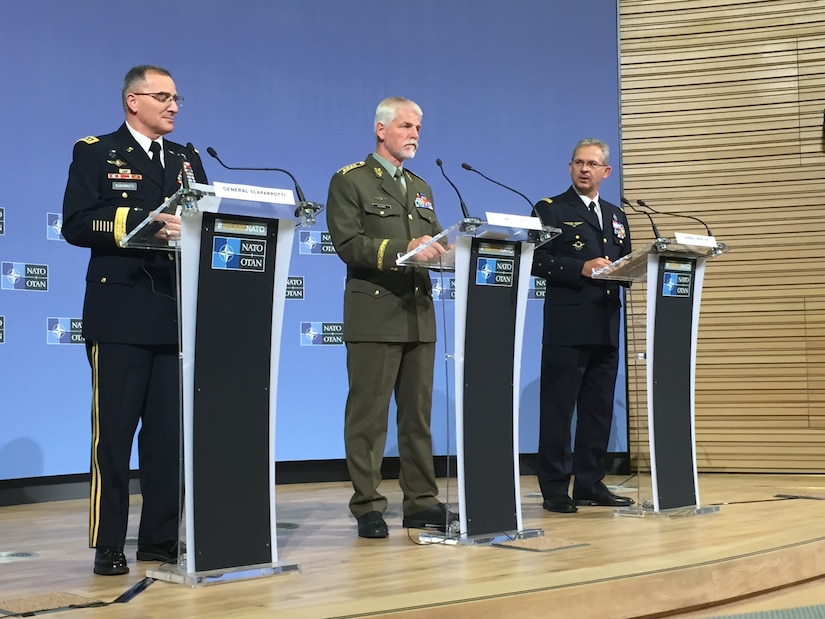By Army Sgt. Zoe Morris, West Virginia National Guard
CHARLESTON, W.Va. -- Key leaders from Qatar, the state of
West Virginia and the West Virginia National Guard met here May 14 to discuss
and celebrate their newly formed partnership.
West Virginia Gov. Jim Justice and Army Maj. Gen. James A.
Hoyer, the adjutant general of the West Virginia National Guard, hosted Qatar’s
defense attache, Brig. Gen. Yousef Al Kuwari; Qatar’s air force attache, Col.
Mohamed Al Manai; and Qatar’s army attache, Col. Khalid Al Naimi, along with Qatar
defense attache government affairs representative, Sarah Elzeini for the
introductory meeting at the state capital and later toured the facilities of
the 130th Airlift Wing.
State Partnership Program
This was the first meeting between the new State Partnership
Program partners since the announcement of the West Virginia National Guard’s
selection to be linked with Qatar in April. The Guard leadership capitalized on
the opportunity to showcase the breadth and depth of experience to the Qatari
delegation in multiple facets of domestic response, training, civil support,
emergency response and contingency operations during the visit.
“The National Guard State Partnership Program has brought
West Virginia and Qatar together -- and is a point of pride for us and great
interest, as West Virginia is home to strategic airlift operations and Special
Forces,” said Al Kuwari during a press event.
“We are also looking forward to build off of the West
Virginia National Guard and Qatar Armed Forces partnership,” he said.
“Qatar is exceptionally important to the United States as an
ally and as a partner in dealing with violent extremism, in supporting NATO, in
Afghanistan and other places,” Hoyer said.
The general added, “I think it’s a testament to the men and
women of the West Virginia National Guard, to our governor, to our [elected
officials] who all came together to say we want to be a broader part of the
nation’s defense and take on an even greater role with the establishment of
this partnership with Qatar.”
U.S.-Qatar Partnership
Qatar has recently announced increased funding for
infrastructure improvements and long-term basing to support American and
coalition forces fighting in the region.
“It is our hope that the Qatar armed forces and American
military personnel not only work and fight terror together on the base,” Al
Kuwari said, “but will live side by side as they stabilize the Middle East.
This effort is a reflection of Qatar’s hospitality and warm friendship with
Americans.”
Through the partnership with Qatar, the West Virginia
National Guard will seek to increase military and diplomatic cooperation,
develop and expand defense capabilities and mutually beneficial training
interactions. In addition, the two entities will work to increase
interoperability of forces and deter and disrupt criminal and terrorist
activities in the region.
“The premise of the State Partnership Program is to promote
peace and stability throughout the world,” said program director Army Capt.
Joshua Goforth. “Our new partnership will play a significant role in ensuring
that premise is carried out through our enduring relationship with Qatar and
their military forces.”
In the following months, leaders plan on signing a
memorandum of understanding as well as establishing concrete plans for training
and support missions between the military forces.
This is the second partner nation for the West Virginia
National Guard and the sixth partnership in the U.S. Central Command area of
responsibility.







